Nestle (NESN) SA rules the high-end coffee market in Europe with Nespresso capsules. Green Mountain Coffee Roasters Inc. (GMCR) dominates the U.S., leaving China as the biggest land grab for premium single-serve coffee.
Nestle, due to present results from a Chinese location for the first time tomorrow, has prepared for rising demand in the Asian country with Nespresso machines celebrating the year of the dragon decorated by Hong Kong-based luxury brand Shanghai Tang. Starbucks Corp. (SBUX) said in April it plans to introduce its Verismo single-serve system in the country in 2013.
With Chinese consumers drinking only three cups of coffee per capita each year, compared with 604 for the French, the companies are wagering that there’s latent demand in cities such as Shanghai, where rising wealth is whetting appetites for western luxuries. Mondelez International Inc., (MDLZ) the snacks and coffee business spun off from Kraft Foods Inc., is also considering introducing its Tassimo coffee maker in China.
“There may be a bit of a fight in China as the coffee market there generally is embryonic,” said Jon Cox, an analyst at Kepler Capital Markets.
Sales of coffee pods in China climbed 50 percent last year, compared with 19 percent growth for standard ground coffee, according to researcher Euromonitor International. Still, they represent only about 0.1 percent of the country’s coffee market, illustrating the scale of the opportunity for manufacturers.
‘Inflection Point’
“The number of middle-class consumers in China is expected to increase fivefold between now and 2030, so it could be that coffee companies think the inflection point for single-serve in China is now,” said Warren Ackerman, an analyst at Societe Generale in London with a buy recommendation on Nestle shares.
Nespresso entered the country in 2007 and has three boutiques there. Its expansion plans haven’t been disclosed.
“We are focused on nurturing the budding coffee culture in the country,” said Mark Leenders, Nespresso’s director for Southeast Asia, Greater China and Korea. “The consumer interest is clearly evident any time you walk down a street in Shanghai or any other city in China and see the proliferation of brands and coffee shops.”
Nestle, whose Nescafe instant brand is the source of two- out-of-three cups of coffee in the Asian country, may say tomorrow that organic revenue increased 6.3 percent in the nine months through September, according to the average of 12 analysts surveyed by Bloomberg. Excluding price increases, sales gained 3.2 percent, the estimates show.
Second-Largest Market
Nestle fell 0.4 percent to 61.75 Swiss francs at 9:48 a.m. in Zurich trading, trimming this year’s gain to 14 percent.
Nespresso, which had revenue of 3.5 billion Swiss francs ($3.8 billion) in 2011, or 4 percent of Nestle’s sales, has been one of the company’s fastest-growing areas.
China is set to become Nestle’s second-largest market, after the U.S., this year, according to Ackerman. He estimates sales from that market may reach 5 billion Swiss francs in 2012, rising to nearer 6 billion francs after including the still-to- be-completed purchase of Pfizer Inc.’s infant-nutrition unit.
Soluble coffee has played a big part in the Chinese growth of Vevey, Switzerland-based Nestle, with an average annual growth rate of 20 percent for brands that are used at home.
The soluble market accounts for the bulk of coffee retail sales in China, rising fivefold between 2004 and 2011 and set to almost double to $1.96 billion in the period through 2015, according to researcher Mintel. The expansion of Starbucks, the world’s largest coffee-shop operator, which has been in the country since 1999, is now helping to introduce higher-end coffee to consumers. The Seattle-based company plans to triple the number of its outlets in China to more than 1,500 by 2015.
More Competition?
“Experience from other markets tells us that once people get used to having a fresh cup of coffee in places like Starbucks, it’s very hard to go back,” said Jonny Forsyth, an analyst at Mintel in London.
While Green Mountain focuses on the North American market, Mondelez may soon add to the competition in China.
“In cities like Shanghai and Beijing, a coffee shop culture is developing and there’s a fertile ground for single- serve,” said Hubert Weber, president of Mondelez’s coffee unit.
Chinese consumers may switch to portioned coffee directly from instant coffee and skip the phase of drinking filtered coffee, according to the executive.
“I would compare it to mobile phones and landlines — when you’ve never had a landline, you go straight to a mobile phone,” Weber said.
Still, beverage companies seeking to capitalize on the growth of China’s coffee market have to be prepared for a long haul, said Hope Lee, an analyst at Euromonitor in London.
“China is definitely one of the major growth markets, but it’s still mainly young urban consumers and the majority of Chinese still prefer to drink tea, so companies will need to be patient,” she said.
Source: businessweek.com/news/2012-10-16/nestle-to-battle-starbucks-over-chinese-portioned-coffee-market
